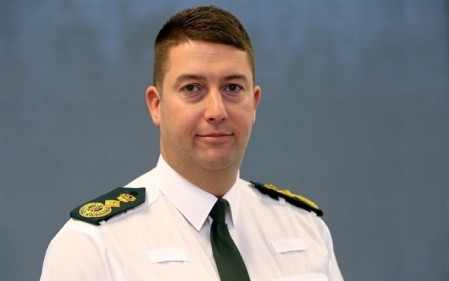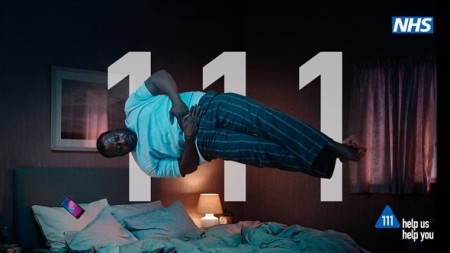As most families look ahead to a quieter time at home this Christmas, East Midlands Ambulance Service is prepared and ready for an unusual, but still very busy, winter this year.
Similar to previous years, 2020 has seen another year-on-year increase in demand, expected to peak over the coming months with the usual winter-related health conditions - flu, pneumonia, bronchitis and norovirus; accidents and injuries associated with this time of year; and we have also had to change the way we work to respond to the COVID-19 pandemic.
Weather related incidents resulting from snow, ice and/or flooding, also often peak in December and January, putting additional pressure on our services, as well as making it difficult for our crews to travel around the region.
So, to make sure we are fighting fit and ready for action, we’ve been working tirelessly to prepare for all that this unusual period has in store. Some of the new initiatives we’ve introduced throughout the year, which will help us during this busy time, include:
- A significant investment in both staff and vehicles, and our team of 1,600 indispensable volunteers continue to provide a critical emergency service that we could not do without.
- A new team of specialist practitioners - paramedics with additional specialist skills - to provide more care for people in situ, reducing the need for referral to already busy hospitals.
- A new rota of doctors has joined our 999 control room Clinical Assessment Team, working alongside our nurses and paramedics to provide advanced medical advice to help our patients get access to the right kind of care at the right time – ie not always ending up in an emergency department.
- Additional private emergency ambulance services will be brought on board to support peaks in activity.
- Our urgent care staff in all counties are working closely with our partners from the Fire and Rescue Service who are helping us to deliver essential GP admission services.
- Encouraging people who don’t need an ambulance to contact 111 first who will advise if a trip to A&E is needed and give you a timeslot for treatment. This way it helps us maintain social distancing keeping patients and staff safe.

EMAS Chief Executive Richard Henderson said:
“Without a doubt, this winter is going to be one of the most challenging yet for the whole health service - but we are prepared and ready.
“As well as the usual spikes we expect in winter-related illnesses, COVID-19 brings us a new set of challenges, but our staff are well trained, equipped and experienced in caring for patients with the virus safely.
“We’ve been working hard with our health colleagues around the region to get a robust winter plan in place and while it’s unlikely to be a ‘normal’ festive period for many, our residents can be assured that their ambulance service will be there for them if they need it.”
The Christmas and New Year celebration period sees the largest number of calls to our 999 control room of any time of year and while most bars, pubs and clubs are likely to be closed this year, we are still planning for a surge in demand – in whatever shape this may take.
Richard Henderson added:
“At such a busy time of year we will have to prioritise urgent and immediately life-threatening injuries and conditions first, and ask others to wait until crews become available. This is why self-care is so important, and why I call on everyone to take it seriously this winter.”
What you can do to help
- Take self-care seriously – do everything to keep yourself healthy including keeping your home heated to 18C,have regular hot meals and drinks, and wear a few layers of thin clothing rather than one thick layer as this will help you to keep warm.
- Have your flu jab if you are eligible
- If you have diarrhoea and vomiting (D&V or norovirus) then please don’t mix in public for 48 hours after the last episode, and definitely don’t visit a hospital unless you’re really ill. If your children have D&V then they should stay away from school.
- Don’t use A&E for minor illness or injury as you might risk the care of people who are seriously ill by diverting staff.
- Know your limits if celebrating during the festive season and take responsibility for your actions.
- Call NHS 111 for advice if you don’t know where to go. They will advise you of the best place to go that can help.
- Think about whether you need to visit a service – can the pharmacy help, for example?
- Remember that your GP practice has appointments in the evenings and at the weekend.
